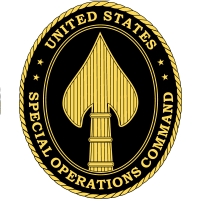Special Ops Leader Seeks More Autonomy, Prompting Fears of Army within an Army
Tuesday, February 14, 2012

Coming off the successful kill of Osama bin Laden and the hearty congratulations of politicians and many Americans, the man in charge of Special Operations forces is lobbying civilian and military leaders for more freedom in deciding when and where commandoes should be sent next.
Admiral William McRaven, head of the Special Operations Command, is reportedly “seeking new authority to move his forces faster and outside of normal Pentagon deployment channels,” according to The New York Times. The change in military policy and protocol could mean the expansion of Special Ops units operating in parts of Asia, Africa and Latin America that have not been priorities in the past.
Special Operations Command is also expected to receive an increase in funding—at a time when the Department of Defense budget is shrinking.
McRaven’s plan for more autonomy will not come about easily, if it gets approved at all, as there are fears that it could become an army within an army. Other military commanders who have traditionally had a say in where Special Ops deploy may oppose the admiral’s move, as could the State Department. Diplomats in foreign countries worry that fewer strings attached to McRaven could result in more missions that infringe on the sovereignty of other governments and possibly jeopardize relations with Washington.
There are now more than 65,000 military and civilian personnel working for Special Operations Command, which now has an annual budget exceeding $10 billion.
-Noel Brinkerhoff
To Learn More:
Admiral Seeks Freer Hand in Deployment of Elite Forces (by Eric Schmitt, Mark Mazzetti and Thom Shanker, New York Times)
How The Pentagon’s Top Killers Became (Unaccountable) Spies (by Spencer Ackerman, Wired)
The Command: Deep Inside the President's Secret Army (by Marc Ambinder, Amazon)
Troop Pullout from Afghanistan? Not for CIA and Special Operations (by Noel Brinkerhoff, AllGov)
- Top Stories
- Unusual News
- Where is the Money Going?
- Controversies
- U.S. and the World
- Appointments and Resignations
- Latest News
- Trump Renames National Football League National Trump League
- Trump to Stop Deportations If…
- Trump Denounces World Series
- What If China Invaded the United States?
- Donald Trump Has a Mental Health Problem and It Has a Name






Comments